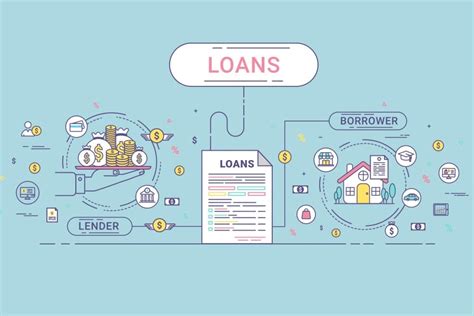Navigating Sallie Mae Student Loans: A Comprehensive Guide

`markdown
Preview: Understanding Sallie Mae student loans can be overwhelming. This guide breaks down everything you need to know, from loan types and repayment options to refinancing and potential pitfalls. We'll help you navigate the world of Sallie Mae and make informed decisions about your education financing.
What is Sallie Mae?
Sallie Mae, formally known as SLM Corporation, is a consumer banking company that originates, services, and collects private education loans. While they used to be a government-sponsored enterprise (GSE) that serviced federal student loans, they are now entirely a private entity. This means Sallie Mae primarily deals with private student loans, which have different terms, conditions, and repayment options than federal loans.
Understanding Sallie Mae Loan Types
Sallie Mae offers various private student loan products, including:
- Undergraduate Loans: Designed to cover tuition, room and board, and other educational expenses for students pursuing a bachelor's degree.
- Graduate Loans: Tailored for students enrolled in graduate programs, such as master's, doctoral, or professional degrees.
- Career Training Loans: Available for students pursuing certificates or vocational training programs.
- Medical and Dental School Loans: Specifically designed to meet the unique financial needs of medical and dental students.
- Immediate Repayment: Begin making full principal and interest payments while still in school.
- Interest-Only Repayment: Only pay the accrued interest while in school, reducing the overall loan balance slightly slower.
- Deferred Repayment: Postpone both principal and interest payments until after graduation, but interest continues to accrue, increasing the total cost of the loan.
- Credit Score: Refinancing often requires a good credit score.
- Interest Rates: Compare interest rates from different lenders to ensure you're getting a better deal.
- Loan Terms: Evaluate the length of the new loan term and its impact on your monthly payments and total interest paid.
- Loss of Benefits: Refinancing a federal loan into a private Sallie Mae loan means you lose access to federal loan benefits like income-driven repayment plans and potential loan forgiveness programs. This is not applicable when refinancing a Sallie Mae loan with another private lender, but is important to consider.
- Higher Interest Rates: Private loans typically have higher interest rates than federal loans, especially for borrowers with less-than-perfect credit.
- Limited Repayment Flexibility: Compared to federal loans, Sallie Mae loans offer fewer repayment options, making it more challenging to manage your payments if you experience financial hardship.
- Variable Interest Rates: Some Sallie Mae loans have variable interest rates, which can fluctuate based on market conditions, potentially leading to higher monthly payments.
- Co-signer Requirements: Many students need a co-signer to qualify for a Sallie Mae loan, which can put a strain on the relationship if the borrower struggles to make payments.
- Budget Wisely: Create a realistic budget that accounts for your loan payments and other expenses.
- Explore Refinancing Options: Regularly compare refinancing rates to see if you can secure a lower interest rate or more favorable loan terms.
- Contact Sallie Mae if You're Struggling: Don't wait until you're in default. Contact Sallie Mae if you're having trouble making payments to explore potential solutions.
- Consider Extra Payments: Making extra payments, even small ones, can significantly reduce the total interest you pay and shorten your loan term.
These loans typically require a credit check and may require a co-signer, especially for students with limited credit history. Interest rates on Sallie Mae loans are variable or fixed and are based on creditworthiness and current market conditions.
Sallie Mae Repayment Options
Unlike federal student loans which have income-driven repayment plans, Sallie Mae repayment options are more limited. Common repayment options include:
It's crucial to carefully consider these options and choose the one that best aligns with your current and future financial situation.
Refinancing Sallie Mae Loans
Refinancing your Sallie Mae student loans could potentially lower your interest rate or change your loan term. This can save you money over the life of the loan or make your monthly payments more manageable. However, before refinancing, consider:
Potential Pitfalls of Sallie Mae Loans
While Sallie Mae loans can be a valuable tool for financing your education, it's essential to be aware of potential drawbacks:
Tips for Managing Your Sallie Mae Loans
Frequently Asked Questions (FAQs) About Sallie Mae
Here are some common questions regarding Sallie Mae loans:
Q: What is the difference between a federal student loan and a Sallie Mae student loan?
A: Federal student loans are backed by the government and offer various benefits, such as income-driven repayment plans and potential loan forgiveness programs. Sallie Mae loans are private loans, meaning they are issued by a private lender and generally have less flexible repayment options.
Q: Can I consolidate my Sallie Mae loans?
A: You cannot consolidate private student loans with federal student loans. However, you can refinance your Sallie Mae loans with another private lender, which may involve combining multiple loans into one.
Q: What happens if I default on my Sallie Mae loan?
A: Defaulting on a Sallie Mae loan can have serious consequences, including damage to your credit score, wage garnishment, and legal action.
Q: Does Sallie Mae offer any hardship programs?
A: Sallie Mae may offer temporary forbearance options in cases of documented financial hardship, but these options are generally more limited than those available for federal student loans. It's best to contact Sallie Mae directly to discuss your specific circumstances.
Q: How do I apply for a Sallie Mae student loan?
A: You can apply for a Sallie Mae student loan online through their website. You will need to provide information about your school, program of study, and financial background. A credit check and potentially a co-signer will likely be required.
`





